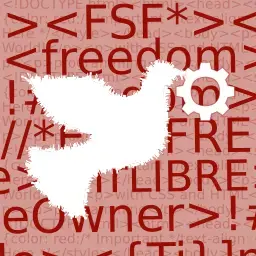

GPL is virally open source, because code using it needs to also be open source.
According to your comment, that doesn’t apply to BSD, so BSD isn’t virally open source, and the claim is true.
The reason some consider this better is because a company can’t fork the code, keeping it private, improving their version with paid workforce while also merging in changes to the original project, thus ending up with a superior version that they can then sell for profit, to no benefit of the opensource version or the people contributing to it.
There’s more reasons, and a whole ideological side, but I think that’s the main practical reason for using copyleft licenses, and a big one.





If the quote is accurate, he went a step further and put pirated games on the devices. Even if pirating the game is legal in some way (he owns it legitimately so putting a copy is fine or something), sending such devices out to customers then means he’s also distributing pirated games.
That said, somebody in the comments claimed he didn’t distribute games, but rather software that made it easy to pirate games - I don’t know what the precedent is for that being considered illegal, but it does call the original claims into question.